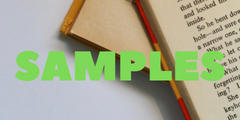Board of Education: Music improves concentration
Since the policy was implemented, board members and educators have been learning about how to use electronic devices. Some people interpret the policy differently, allowing for vivid usage or even none at all. With the new policy in place, students can use their cellphones at school. Teachers aren’t fully embracing the positive uses that can be made of these devices. Research can lead to the development of rules that help improve learning and concentration.
Everyone loves music. It can make us feel better or worse depending on the mood that we are in. Music can help with memory and learning, according to Dr. Masha Gokin (a professor from the Department of Marriage and Family Sciences of NCU). Certain genres are more effective than others. Classical music can be a great study aid. It is quiet and background music with no distracting lyrics. In the student’s position, you wouldn’t want to hear that. You would prefer something more modern and “digital”. Here, electronic music that is slower in tempo can produce the same effects as classical. A song’s tone can also influence the way someone does a particular task. Sad music lowers someone’s blood-pressure and heart rate. This can lead to them being less productive. It is important to listen to the music at a volume that allows you to focus on your studies while listening to it. When music is played at too high a volume, people tend to get swept up in it and lose focus. Music can be used in class to help students focus and learn.
Even when playing music, students should not be glued to their phone during class. It is best to combine music with quieter activities such as reading or doing homework in order to get the most productivity. Our senses pick up on the unconscious system of our brain. It is a system that allows us to focus on our conscious system. Our unconscious system can be easily distracted by noises and movements. Low volume music has the ability to fill and distract our unconscious system. The conscious system can concentrate and focus on schoolwork and studying when there is nothing distracting the unconscious system. Teachers can use this information to ensure that all students are concentrating and not causing distractions. Personal, when I hear someone sneeze or hear a noise from outside, it throws me off focus. When someone sneezes in class, the entire class says “blessings” and sounds outside cause a discussion about what they were. You can focus better when there is music playing. Focus and concentration are difficult with all the distractions. If the only way to fix this is to use music, that is what should be done.
It is possible that educators believe students will “cheat” on the system by using their mobile phones for their personal needs, and not to accomplish anything productive. It is possible to ensure students are using their phones for the right purposes. A low-budget option is to create an application that plays only certain “productive study songs” at a specific volume. Teachers would receive an email notification if their students were to leave the app without logging off. It would also be possible to offer students a small, low-cost music player with certain “brain stimulating”, certified songs that help to focus and boost productivity. Teachers should limit the use of music in class to only those tasks that require concentration. Teachers can ensure that students are doing their tasks by controlling the music in the classroom.
Teachers can take advantage of the fact that students are constantly using electronic devices. This addiction is a good fit for classrooms. Monitored music that stimulates the brain is a great way to get students focused and concentrating on their work. If we are more educated on how to use electronics in a classroom, it can have a positive impact on students’ learning. Music can be an excellent tool for learning and enjoyment.



